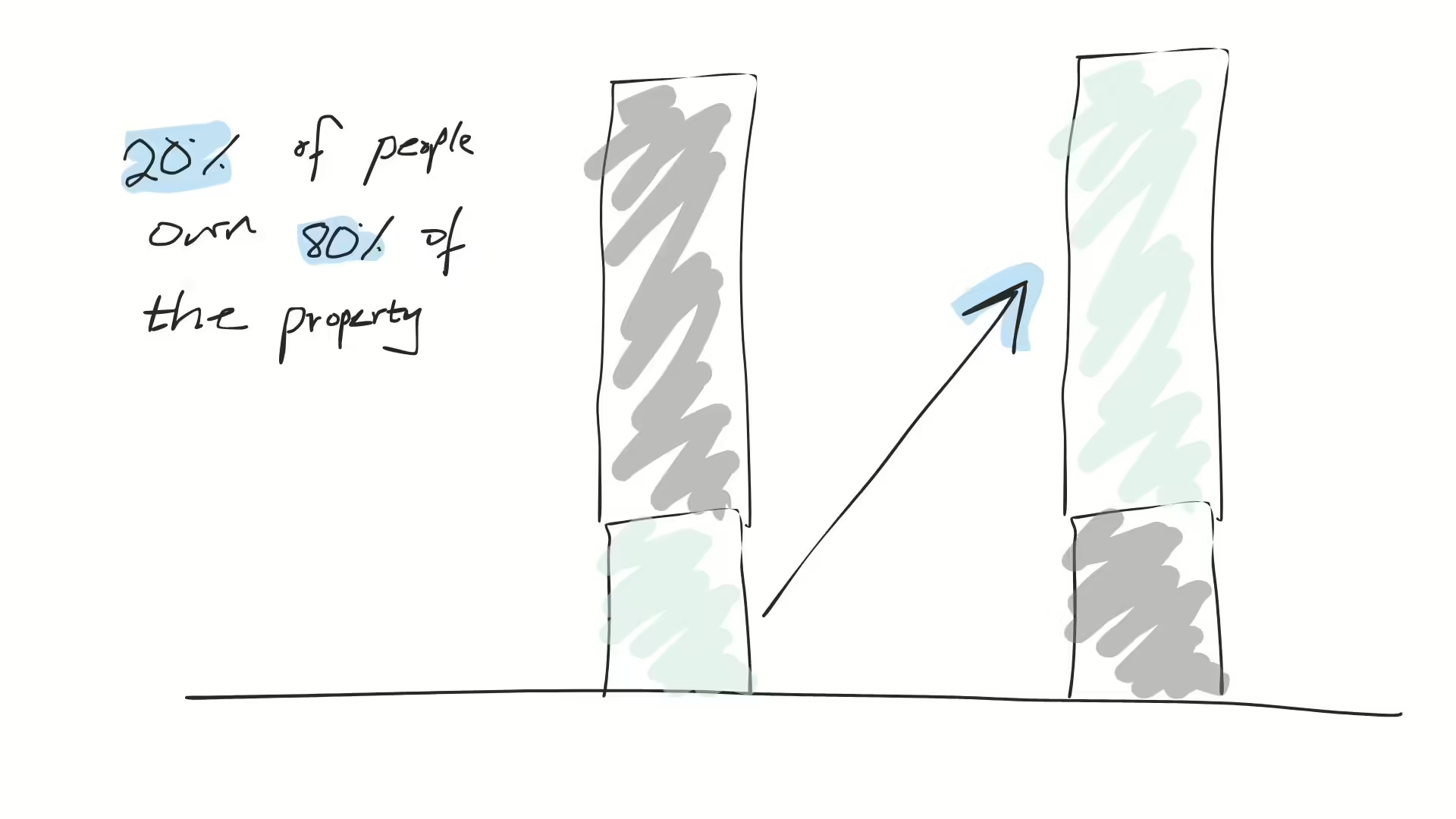In 1906, economist Vilfredo Pareto found that 80% of Italy’s property was owned by 20% of families.
Aside from being an interesting observation, it was an early discovery of what people now call a “power law” (to sound smart).

The reason this happens is obvious:
- Smart families harness the power of slow but consistent compounding (e.g. they would never install the Sportsbet app – but they would buy the stock);
- Smart families know the power of diversification is not about growth, but thriving during a market crash (e.g. these families buy good properties when everyone is being crushed by high interest rates and car loans);
- Smart families work together and invest in relationships (this builds humility into decision making and allows them to have ‘1 + 1 = 3 moments’, such as when two people use a borrowing calculator versus one, and then buy the best house on the street… which goes up in value more than any other).
Capital allocation
If you spend 15 minutes staring at the great marble statues inside the 101 Collins building in Melbourne, chances are, you’ll hear a finance wank use the phrase “capital allocation”.
In traditional finance, this refers to the idea of ‘investing money where it gets the best return, adjusted for risk’.
While it serves a purpose (in marketing their finance business), it’s a short-sighted idea.
When I think about capital allocation and investing, there are 3 things I think about:
- Time – if you’re anything like me, you can look at your Google calendar from last week to see where you allocate your time reveals the honest picture of the man/woman you’re trying to be. Your time is the most precious resource you have, so if you spend it surrounded by colleagues or “friends” who are toxic dickheads, you’re wasting your life. And, sadly, thanks to osmosis, eventually, they’ll infect you. As the exceptional writer and author Nir Ayal once told us, people “spend time” doing things in exactly the same way they “spend money”. But rarely do we review our weekly or monthly “time budget”. Marie Verkakis taught us how to have money and investing conversations with a friend or loved one you care about. I guarantee that reviewing your time allocation will be 100x more valuable than finding the next hot stock.
- Money – where you spend your money also says a lot about you, but contrary to what most finance brands will tell you – being good with money is not about how smart you are. It’s about how you behave. If you try to live your life according to Bill Gates’ formulas to three decimal places, you risk living a suboptimal life. If you find a hot stock, only to stress out and sell – it’s time and money wasted. If you save 35% of your salary but hate yourself, you’ve wasted too much time. The “easier” (and more profitable) thing is to allow yourself to forgive yourself. The way you do that, as leading money coach Karen Eley suggests, is by understanding your relationship with money. Trying to invest in stocks or property for an extra 2% or 3% return, when you don’t even know your budget or goals, is like putting a roof on a house without a floor.
- Effort – mental and physical effort is typically the domain of wellbeing experts, trying to maximise your happiness. Fortunately, you don’t need to pay $1,000 for therapy to make great returns. It’s pretty straightforward when it comes to money and its connection to happiness. While it’s true that money doesn’t equal happiness (I know at least 3 extremely unhappy billionaires), even a small amount of savings will help you get the things that can make you happier. Two of the free activities we’ve done for years with the Rask community are the ‘Perfect Tuesday’ (simply writing down your ideal Tuesday, from waking until sleep) and the 10 Things Activity (PDF). The idea here is that if you don’t know where you are going, any path will take you there. Our free activities allow you to self-assess where you invest your time and money, identify those that bring happiness, and see how that matches against your current life. Having seen dozens – if not hundreds – of people go through this, I’ve found that most of us do a very good job of getting close to our happy lifestyle – without consciously planning for it. However, the knowledge of what makes you happier is what allows you to invest your effort to maximise the gains.
Once you start to think honestly about investing your time, money and effort better, you will never second-guess yourself, your job, how much you save or why you’re investing. You will create your own power laws, and magnify the returns you achieve an infinite number of times.
Onwards & upward!
Psst. if you like this email, please do me a favour and let me know how you invest your time, money and effort better in the Rask Community.









